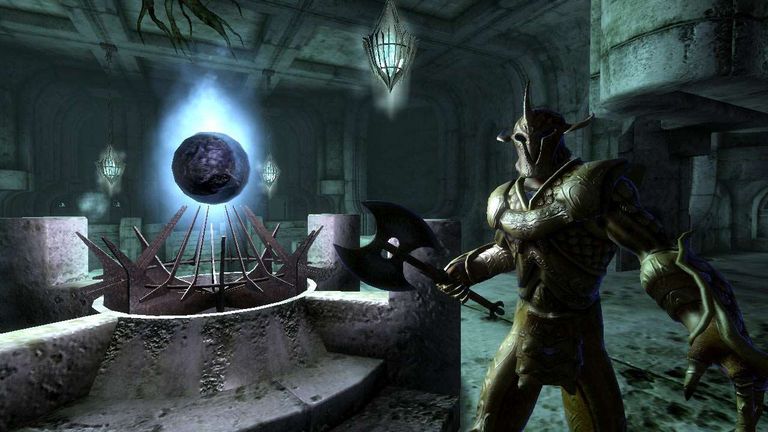The Elder Scrolls IV: Oblivion came out almost 13 years ago. Since the game released in March of 2006, two other mainline Elder Scrolls games have come and gone. Bethesda also released the first of the modern Fallout games, and then went on to release two sequels and outsourced the development of New Vegas. The industry has changed tremendously in those 13 years, but Bethesda, clearly, has not. Sure, maybe as a publisher their esteem has plummeted in recent years, but their games (at least their RPG’s) have remained fairly formulaic. Fallout 4 even still uses largely the same control layout that Oblivion does. Systems are tweaked here and there, level-up systems are overhauled, some have romance options and some don’t, but calling something a Bethesda RPG would likely give someone all the information about a game that they could really need. This wouldn’t necessarily be a bad thing; after all, the same could be said about the SoulsBorne games. The problem is that the core that these games are built around simply isn’t very good.

Don’t get me wrong, I am a huge fan of Bethesda Game Studios’ work. In fact, Oblivion still remains my favorite game of all time, despite the flaws. That’s why I’m still playing it in 2019. But the recent release of Fallout 76 has thrown a lot of the shortcomings of their games into the spotlight. Many criticized the game for not offering what the main fanbase wanted out of a Bethesda RPG, like a deep story, interesting characters, and a world that felt alive. By removing many of these elements in favor of a multiplayer focus, it exposed the same core that has been around since Morrowind, and the hard truth is that it was never a great one
Let’s get this out of the way now; Oblivion isn’t great. I love the game to bits, but that doesn’t mean I have to ignore the problems. Sure, most games from the early days of the seventh console generation have aged poorly, but the issues with this one were indefensible even then. It had the worst level up system I have seen in almost twenty years of gaming, the combat felt floaty and offered no sort of catharsis, and the voice acting was abysmal. What made it work, however, was the charm. The obvious love and passion that the developers had for the world they had created was apparent in every nook and cranny of the game. The memorable soundtrack made the simple act of walking to a location enjoyable. The sense of wonder that the player has when they first see the world after stepping out of the tutorial area is unmatched by almost any other game.
The layers upon layers of every system in the game went so deep that I still don’t fully understand how many of them work after over 500 hours of play time. Even the little motivational line that you get after every level up went a long way in making it feel like a well-realized piece of art, as opposed to a well-marketed product. As time has gone on, this has been present in every Bethesda Game Studios game to some degree, until, in my opinion, Fallout 76. I won’t spend too much time harping on this one, as nearly every gaming outlet on the internet has already done that. However, now that it has exposed the core of these games, it will impact the studio’s work in the future. Many pundits have already noted that Starfield and The Elder Scrolls 6 will need to step up their game to impress people after the 76


